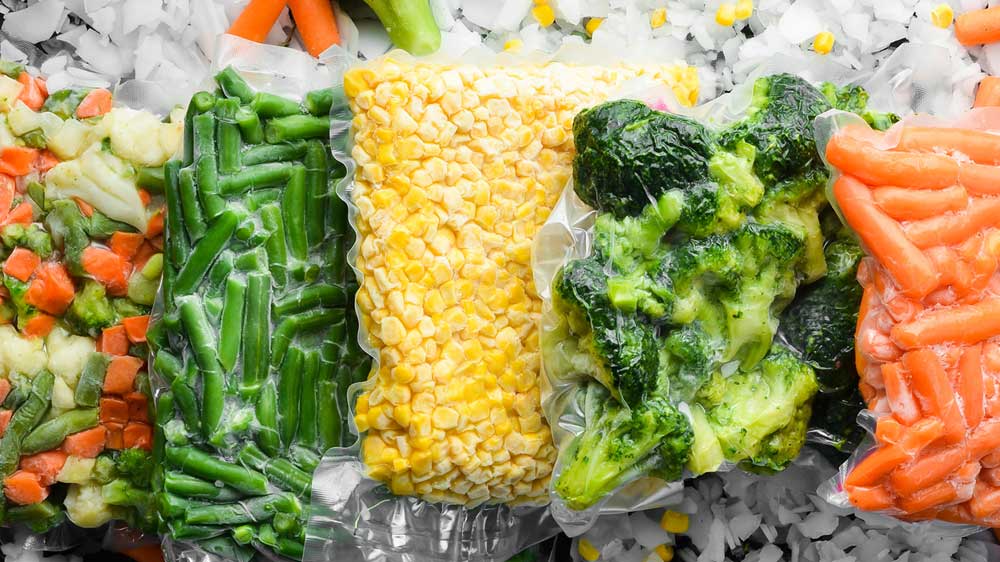- Posted on
- • Wellness
Maintain the Quality of Frozen Vegetables with These 5 Tips
- Author
-
-

- User
- Aira Nicole
- Posts by this author
- Posts by this author
-

YARUNIV Studio/Shutterstock
Vegetables are an essential part of a healthy diet that should be consumed daily. They help meet our daily fiber requirements and provide vital vitamins and minerals that are beneficial for overall health.
With the options of fresh and frozen vegetables available, some people tend to prefer fresh vegetables, believing them to be healthier. However, when stored correctly, frozen vegetables can be just as nutritious as their fresh counterparts.
Here are five tips to ensure that frozen vegetables retain their quality.
1. Choose the Right Vegetables
The first step in preserving the quality of frozen vegetables is selecting the right ones. If you frequently shop at supermarkets, it’s important to be meticulous in your choice. Not all vegetables freeze well, and some may even lose their flavor and color during the freezing process.
Certain vegetables, such as radishes, lettuce, cabbage, and small-leaf greens like parsley and celery, possess higher moisture content. This can lead them to become limp and develop unpleasant odors when frozen. Therefore, it is advisable to cook these types of vegetables immediately instead of freezing them.
2. Clean the Vegetables
Before placing vegetables into the fridge or freezer, ensuring they are clean is crucial. This practice helps eliminate any pathogenic microbes that may be present on the vegetables.
To clean frozen vegetables, you can thaw them and wash them with clean water. This step is essential to keep your dishes safe and adds to the quality of your culinary creations once you cook them.
3. Use Proper Storage Containers
Another significant tip is to store your frozen vegetables in suitable containers. It’s vital to choose airtight, moisture-resistant, durable containers that are easy to close and can withstand low temperatures without cracking.
A good container will protect the vegetables from oxidation, thus preserving their structure and overall quality. When you purchase frozen vegetables from a supermarket, it’s a good idea to open the packaging and transfer the vegetables to an airtight container. Options for storage include plastic freezer containers, specialized freezer bags, or glass jars.
If you’re using ziplock bags or freezer bags, fill them almost to the top and press out any excess air. This technique helps limit air exposure, which can lead to freezer burn and degradation in quality.
4. Thaw Before Cooking
When you're ready to use frozen vegetables, it is advisable to thaw them beforehand. Thawing makes the cooking process easier and allows for more even cooking, enhancing the final dish's texture and flavor.
You can thaw the vegetables overnight in the refrigerator or let them sit at room temperature for a few minutes before cooking. This will streamline your cooking process and improve the overall quality of your meals.
5. Avoid Long-Term Storage
Even though frozen vegetables can last for an extended period, it’s crucial not to leave them in the freezer for too long. Preserving them for too long can impede the growth of microorganisms, leading to a decline in the overall quality of the vegetables.
To keep vegetables at their best, store them at a temperature of -17 degrees Celsius (or 0 degrees Fahrenheit). The recommended shelf life for frozen vegetables is 8 to 12 months. However, for optimal freshness, it's best to consume them sooner rather than later.
By following these tips, you can maintain the quality and freshness of frozen vegetables effectively. Fresh vegetables offer undeniable benefits, but when stored correctly, frozen vegetables can provide a nutritious and convenient alternative.
Proper selection, cleaning, storage, thawing, and adhering to time limits will ensure you enjoy the full benefits of frozen vegetables in your meals. Happy cooking!